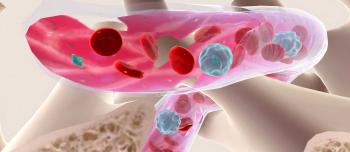uniQure recently announced interim clinical trial data related to a phase IIb clinical study of etranacogene dezaparvovec (AMT-061), the company’s investigational gene therapy candidate for patients with severe and moderately severe hemophilia B. The reported data is based on three individuals who received a single administration of the investigational therapy.
Etranacogene dezaparvovec consists of adeno-associated virus serotype 5 (AAV5), which has been demonstrated to be safe and well-tolerated, acting as a delivery vector carrying a gene cassette with the Padua variant of factor IX (FIX). AAV5 is a variant of the type of the adeno-associated virus (AAVs) vectors that are being investigated in multiple gene therapy trials.
According to a recent UniQure press release, a combined follow-up of 78 weeks of observation on the three participants showed a mean FIX activity of 47% of normal (range of 33% to 57% of normal) following treatment with etranacogene dezaparvovec. In addition, the therapy was associated with a complete cessation of bleeds up to the 26-week interim endpoint, with no patient in the study requiring infusions of FIX replacement therapy during this time.
“In individuals with severe and moderately severe hemophilia B, etranacogene dezaparvovec resulted in clinically-relevant increases in FIX activity, cessation of bleeds and abrogated the need for FIX replacement, despite the presence of pre-existing anti-AAV5 neutralizing antibodies detected by the highly sensitive luciferase assay,” said Steven Pipe, MD, professor of pediatrics and pathology and pediatric medical director of the hemophilia and coagulation disorders program at the University of Michigan and an investigator in the Phase IIb clinical trial. “While these observations are limited to three participants, the consistency of results among participants supports the ongoing pivotal Phase III HOPE B trial which will further assess the safety and efficacy of etranacogene dezaparvovec. If these results are confirmed by the Phase III trial, physicians will be provided with increased confidence that reliable clinical outcomes can be achieved following gene transfer.”
Source: UniQure press release dated October 31, 2019





